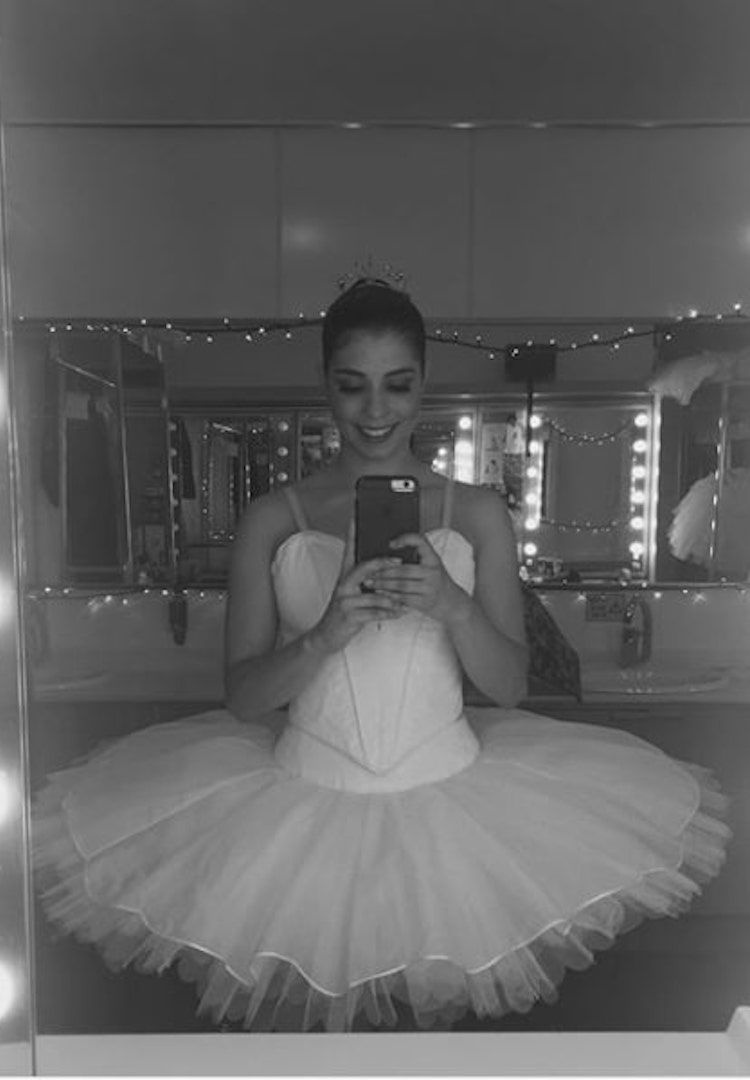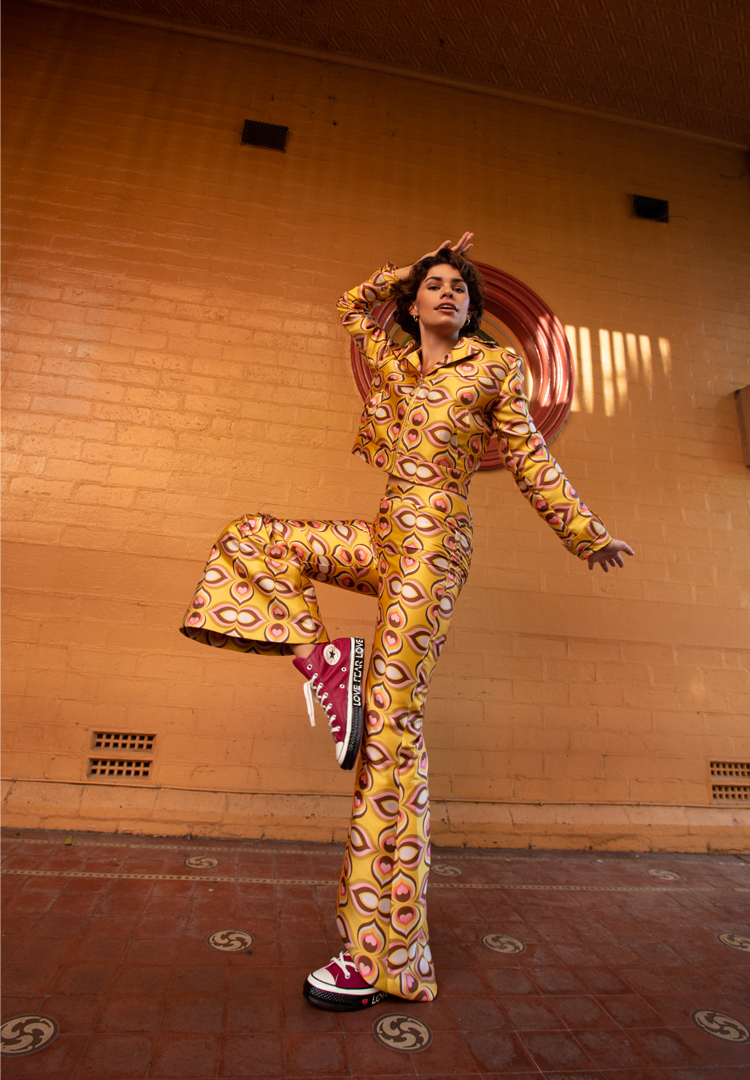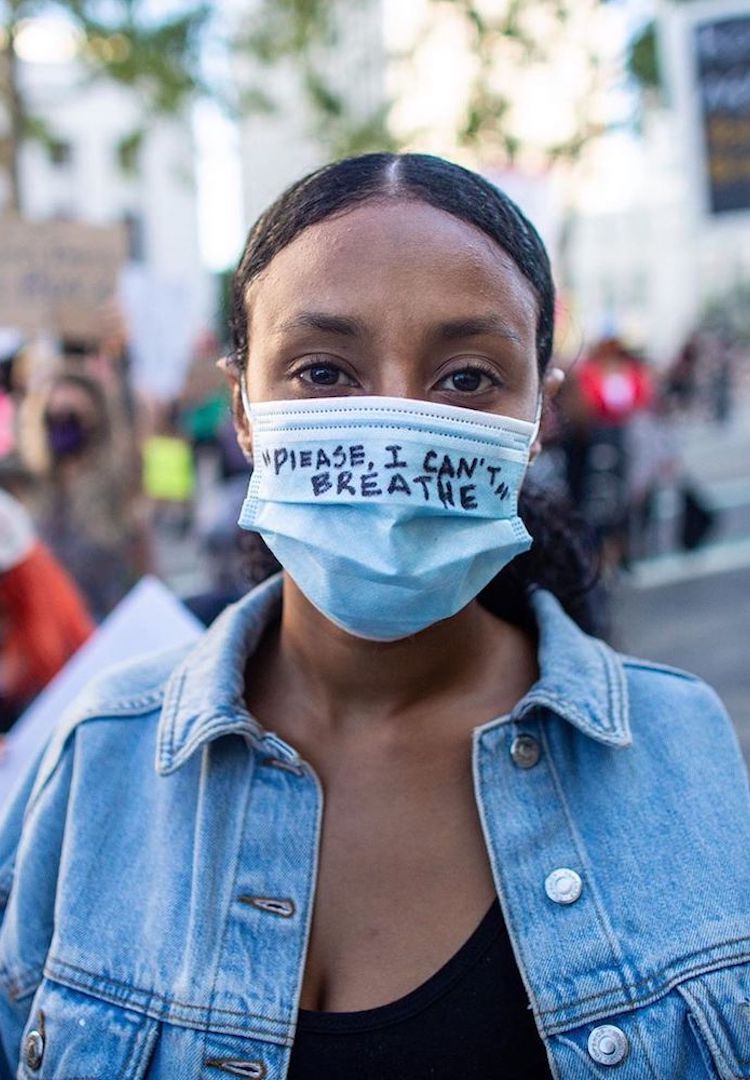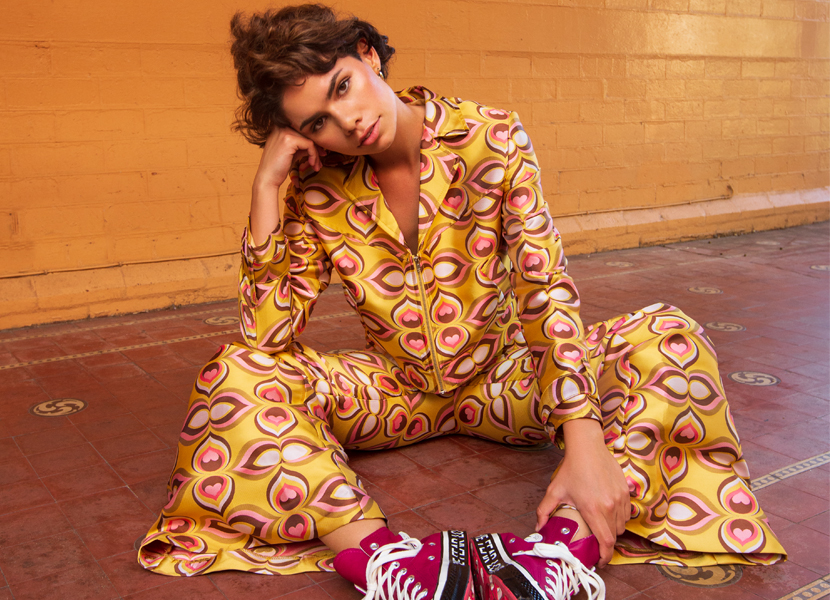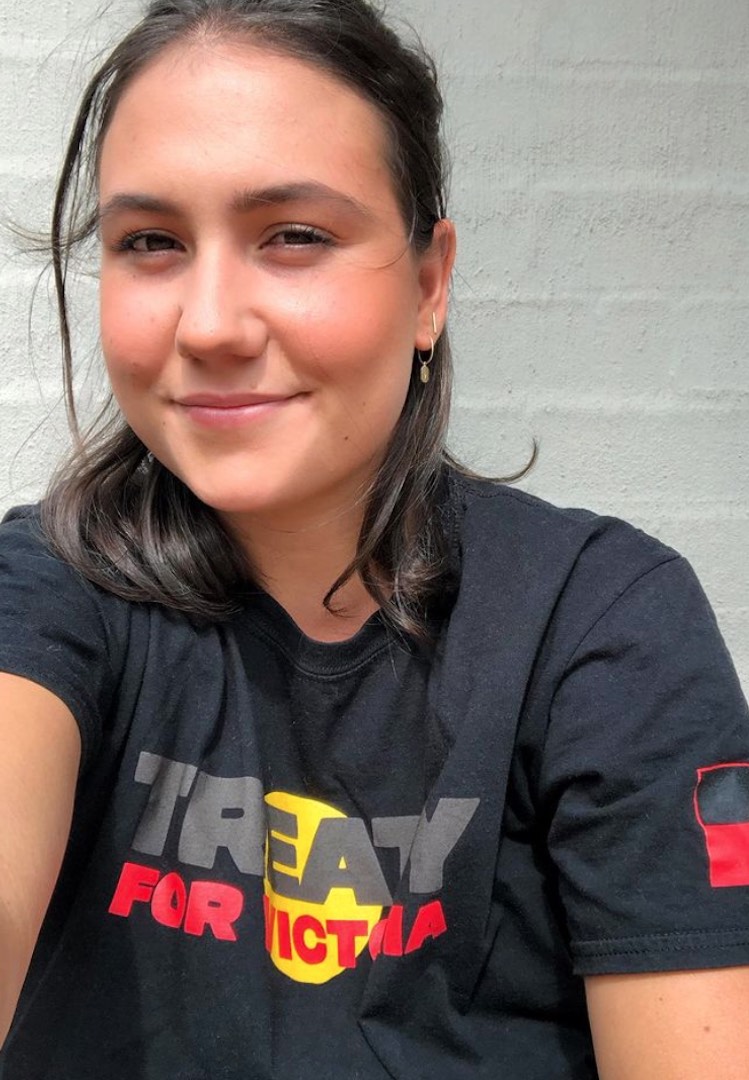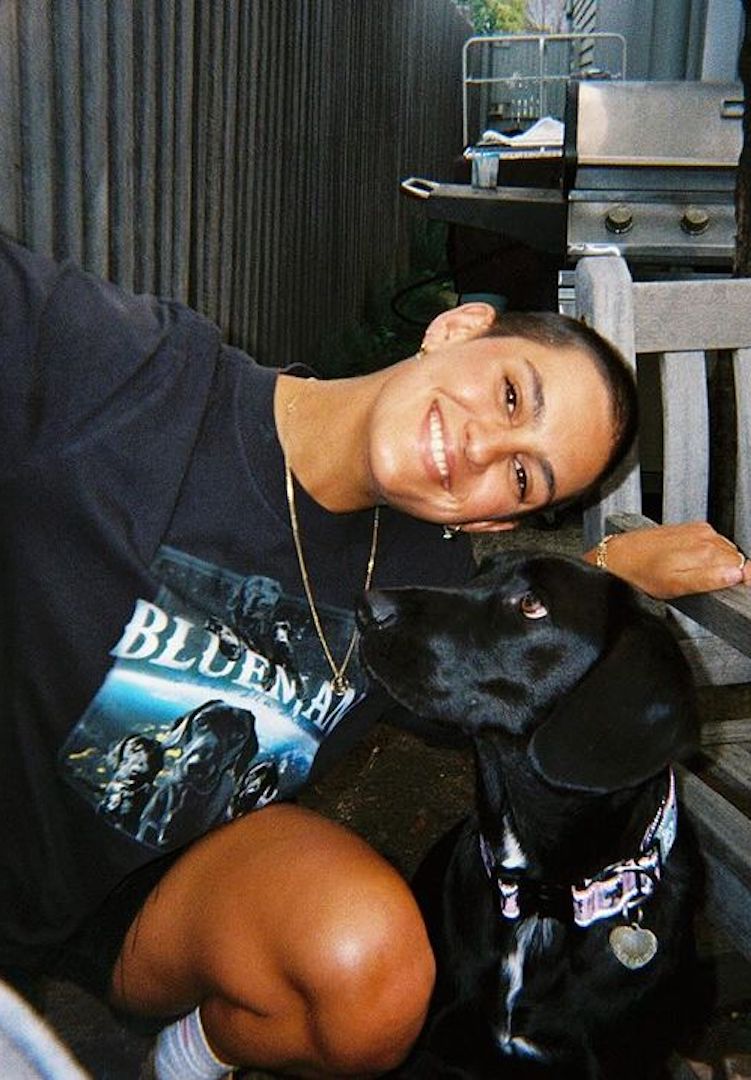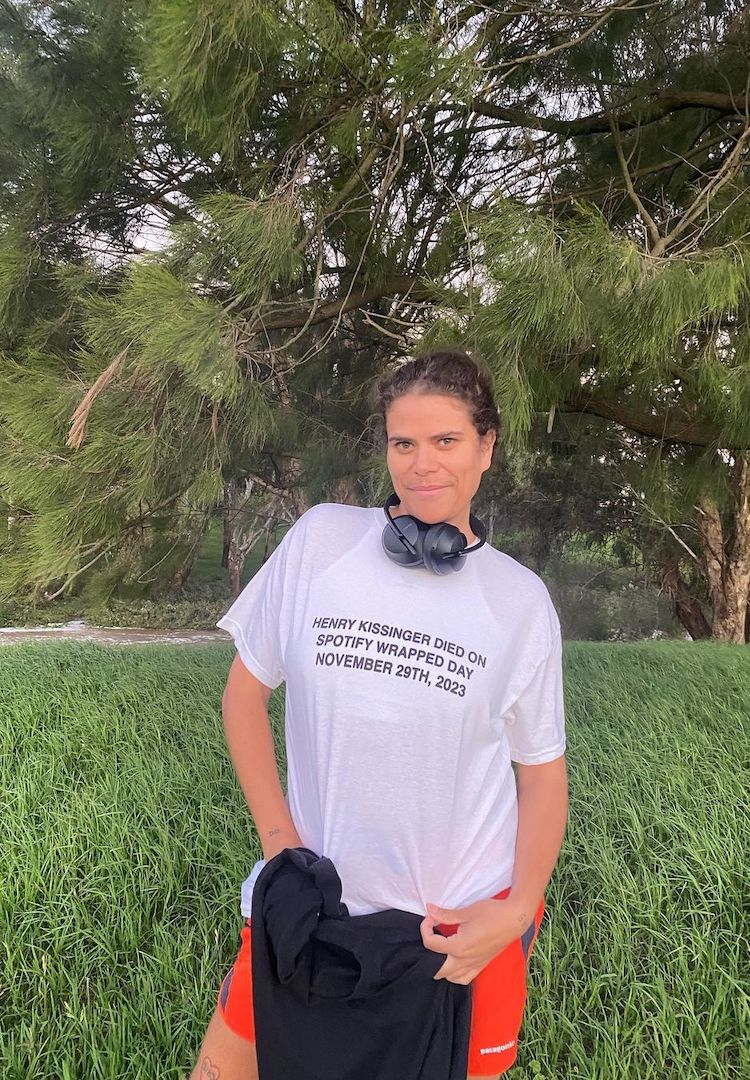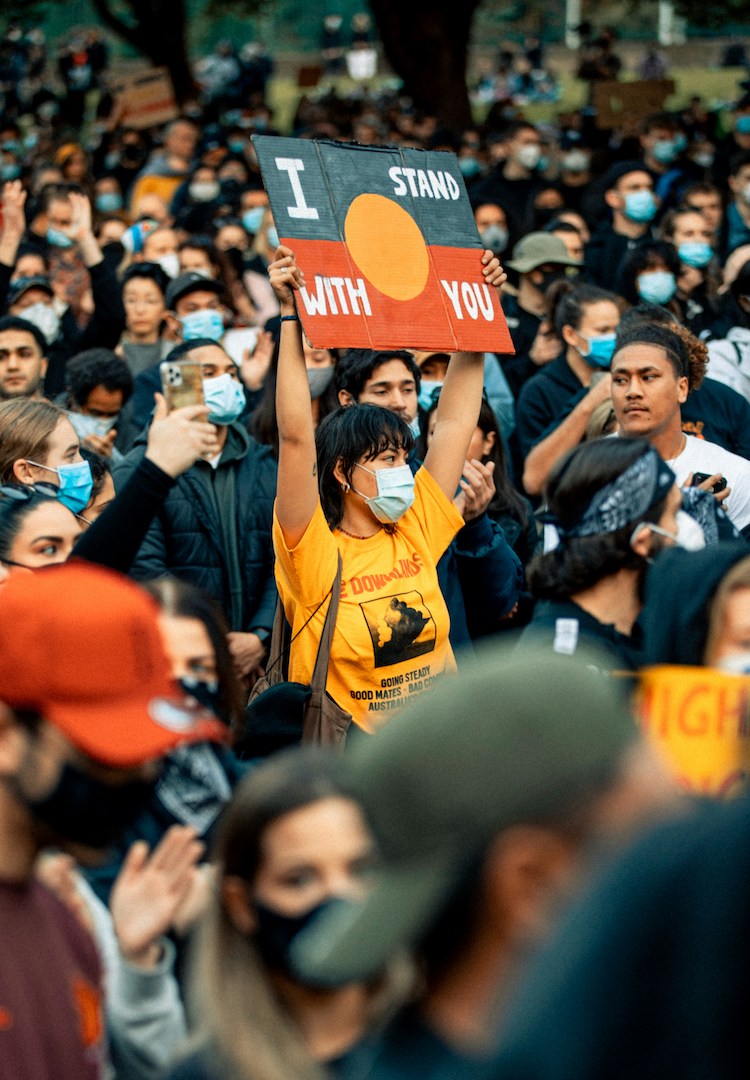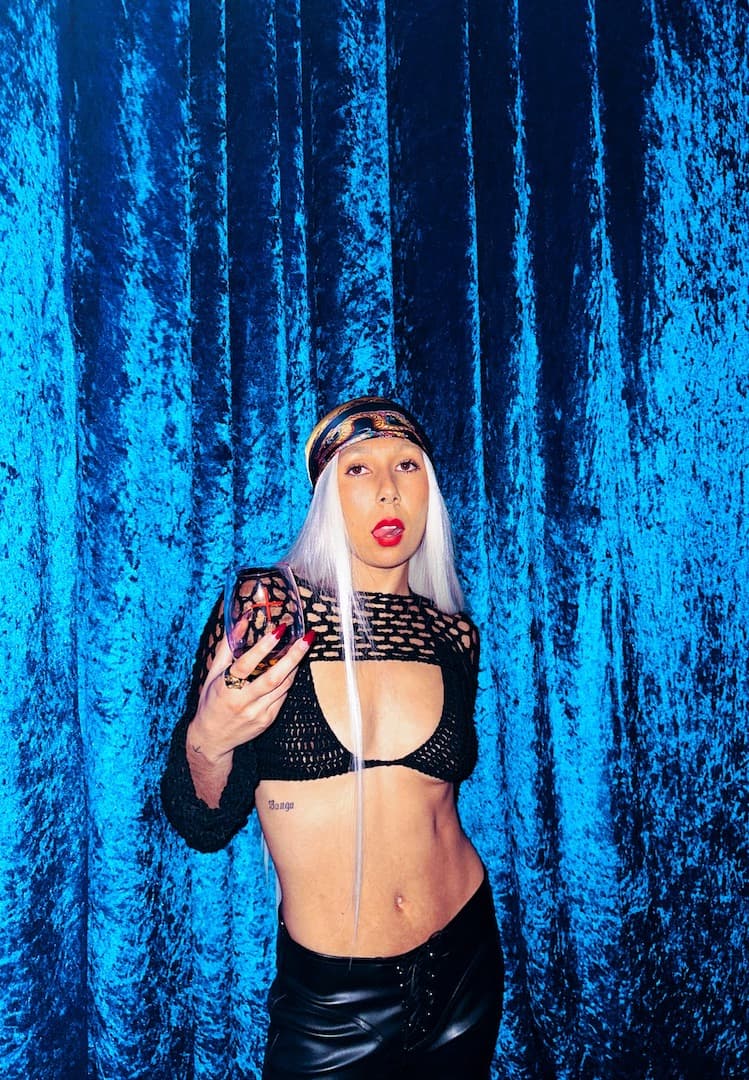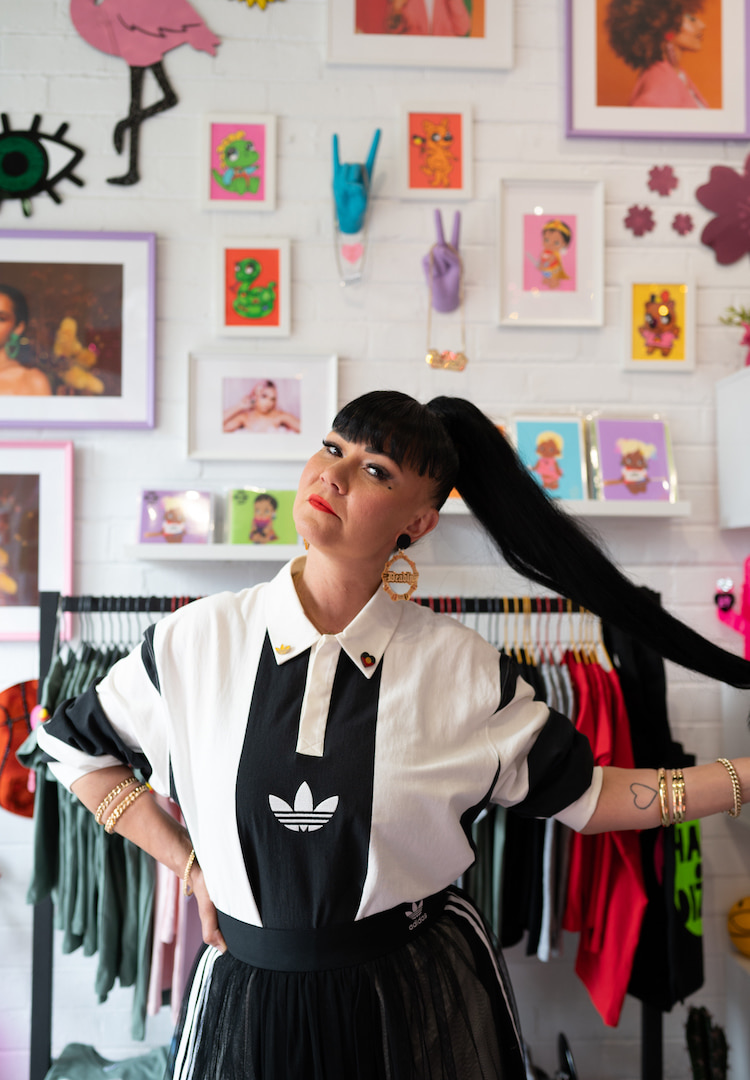Here’s what First Nations peoples want you to know this National Reconciliation Week
PHOTOGRAPHY BY KATHERINE BOYLE
WORDS BY MAGGIE ZHOU
“This is your fight too.”
This week we welcome a guest editor to Fashion Journal, Rona Glynn-McDonald. Rona is the founder of Common Ground, a not-for-profit organisation educating Australians on Aboriginal and Torres Strait Islander cultures. Rona is joining us for Reconciliation Week, which runs from May 27 to June 3. Read more about Common Ground and Rona’s work here.
Since 1996, National Reconciliation Week has been a time for reflection and education for all Australians to learn how we can work to fix the severed and broken relationships with our First Nations people in the hopes of achieving reconciliation.
This year’s week has been magnified by America’s Black Lives Matter movement, spurred from the unjust and horrific murder of George Floyd.
While these overseas atrocities are in the mainstream media’s limelight, many First Nations people have pointed out the irony of condemning violence against black people without first looking into our own backyard.
Aboriginal and Torres Strait Islander musicians, activists, artists and sportspeople have taken to social media to voice their truth and hurt. It’s not the responsibility of First Nations people to educate us, but as they have offered up their time, resources, knowledge and emotional labour, the least we can do as non-Indigenous people is listen and take action.
Rachael Sarra: Designer, artist and activist from Goreng Goreng country
“Do you know what reconciliation is by definition? It’s the restoration of “friendly” relations… For me personally, I’ve never truly enjoyed Reconciliation Week because by definition it’s built off the assumption that a friendly relationship with First Nations people existed to begin with… so when I think about this year’s theme, “we’re in this together” we must still carry the burden of truth-telling with us and continually. We cannot move forward too quickly without the foundation of truth under us. So when I hear “we’re in this together” I want to know how? Genuinely, how are you with us? Do you know us? Do you know the history, the truth? We are more than an acknowledgement to country at the beginning of a meeting. How are you truly with us and the elders you mention in that acknowledgement?
“On a surface level, black business is thriving this week. The thing is, it’s the easily curated, grid appropriate and not too controversial content that is the real MVP here. Black business and black voices that fit the brand guidelines are really thriving this week but come the end of the week we’ll slip through the cracks of those who are acting because ‘Acknowledging Black’ is fashionable… Remember when you’re consuming ‘fashionable and marketable’ content this week or better if you’re the ones curating that content remember to help enable those whose voices may not be as marketable but are potent in their conviction and their knowledge.
“For those who are speaking up and out about the loss of Black Lives in the States, remember that this happens every day on our own soil, yet Australia’s perfect narrative remains intact. Remember that Australia was born on the genocide of black lives and we have never once genuinely acknowledge that. We instead choose to celebrate it. Because it is not trending on social media, because A list celebrities are not posting about it does not mean it is any less important to show up for First Nations Australians on your own soil.”
Aretha Brown: Indigenous Australian activist and artist and former Prime Minister of the National Indigenous Youth Parliament
“What is our role during Reconciliation Week? In my opinion our political stances, activism and acts of Reconciliation must be practical, otherwise our ideas fail to transform into anything. To be an activist… is to be active. Actively fighting oppression, injustice and historical erasure. But that only works if practical efforts are made… anyone can be politically conscious and compassionate in theory, but there is a major difference in what is said and what is done.
“Reconciliation for me starts at… actively checkin up and helping our First Nations mates and actively getting involved in community. First by learning, then listening and then by speaking up. Ask yourself how can I PRACTICALLY help the Aboriginal community I’m living in, today? Because you are already living in one, there is no separation, our history is your history.”
Ziggy Ramo: Indigenous hip-hop musician from remote Arnhem Land
View this post on Instagram
“I have nothing insightful to say. No think piece. I’m tired of justifying our existence. White people exercise your privilege and make a difference. The system you created, the system that benefits you, the system you continue to enforce is killing us. This isn’t our issue to fix. We are not the problem. You are.”
Brooke Blurton: Noongar/Yamatji woman, youth worker and mental health advocate
“It’s taken me a while to have any comment to what’s happening in the world right now. 2020 has already been a tough year for some and for me personally… My voice is very limited right now, due to my capacity but I will offer this: In order to move forward, understanding systemic racism is crucially important. Not pointing fingers but to identify these systemic privileges enables us to embrace the point of view of people whose cultures are silenced or minimised.
“When we question systemic racism… worth is shared and ideas grow. We’ve been through huge tragedy, bushfires, climate change, COVID-19 and we’ve seen Australia unite in some way. What I’m trying to say, today when I scroll through my feed, I see that we unite for a US tragedy and I’m not taking away the attention of such injustice and tragedy, though I ask the question… When will we unite for our own First Nations People here in Australia? We suffer the same injustice here but yet your voices are quiet, dull, minimised.”
Soju Gang (Sky Thomas): Aboriginal DJ, designer and artist
“This is a friendly reminder that the blak community in Australia are lynched by the police too. We don’t receive international coverage or outrage. We don’t have our stories shared in the 7 o’clock news supporting us. We don’t have people hurrying to seek justice for the ones we’ve lost. If you’re for black rights this passionately you should [show] the same energy for the Indigenous people dying at the mercy of a country who still commits multiple forms of genocide upon us.
“Australia is no different from America. The only difference is that you care about the black bodies overseas but ignore the ones on your doorstep. 425 deaths in custody, over 40,000 Aboriginal kids forcibly removed to foster care, highest incarceration rates in the world, highest suicide rates in the world, refused medical treatment and continuous victims of police brutality.”
Dan Sultan: Aboriginal songwriter, musician and actor
View this post on Instagram
“Apathy is worse than ignorance. And that’s what we’re dealing with in Australia. A complete lack of care and a total disregard for us as a people and as people. Absolutely disgraceful. Check your apathy.”
Senator Briggs (Adam Briggs): Yorta Yorta man, rapper, record label owner, writer and actor
Much love and respect to my friends, peers and colleagues stateside.
To my Mob at home; I choose to believe there’s a way out of this. pic.twitter.com/QhE3dWUzeO
— Senator Briggs (@Briggs) June 1, 2020
“I empathise with the protesters because Australia has its own history of police brutality and Indigenous deaths in custody. There have been more than 400 Indigenous deaths in custody, and not a single conviction. I empathise with the protesters because, like America, Australia was founded on White supremacy, and built its wealth on the murder, rape and slavery of its Indigenous people. Australia parades this idea of “The Lucky Country”; but their Luck is our dispossession. Their Luck is our Death. Their Luck is our Trauma. Their Luck is our Grief.”
Nakkiah Lui: Gamillaroi and Torres Strait Islander woman, writer and comedian
If a country is built on violence, if a country is an institution built on broken backs, an institution that values some peoples lives over others, an institution that is there to make profit to small minority & silence the majority who have nothing, is it a country worth saving?
— Nakkiah Lui (@nakkiahlui) June 1, 2020
“White Colonisation invaded Australia, committing mass genocide, slavery, stealing land and children. All acts that continue today. So you’re asking Aboriginal people to RECONCILE with… what? Reconciliation is a ruse to depoliticise Aboriginal inequality and invalidate our anger.
“If a country is built on violence, if a country is an institution built on broken backs, an institution that values some people’s lives over others, an institution that is there to make profit to [a] small minority and silence the majority who have nothing, is it a country worth saving?”
Joe Williams: Wiradjuri/Wolgalu man, professional sportsman, mental health advocate
View this post on Instagram
I don’t even speak the term #Reconciliation – time to start relationship, one of mutual respect!!!
“To reconcile, is the ‘restoration of friendly relations’. Let’s be honest; there has never been a friendly relationship with the first people, it’s always been a dictatorship. Forget reconciling or restoring a relationship that never was; time to build one.”
Nathan Appo: Indigenous Man from Innisfail, Mamum Goreng Goreng and Bundjalung
Fellow Australian’s I see that fire in your belly, I see that energy.
I wanna see that same energy when we need you here.
The next time a police officer kills one of my brothers or sisters here in Australia and it will happen, I need to see that energy.
This is your fight too
— Nathan Appo (@Elusive_Sausage) May 31, 2020
“Fellow Australians, I see that fire in your belly, I see that energy. I wanna see that same energy when we need you here. The next time a police officer kills one of my brothers or sisters here in Australia and it will happen, I need to see that energy. This is your fight too.”

